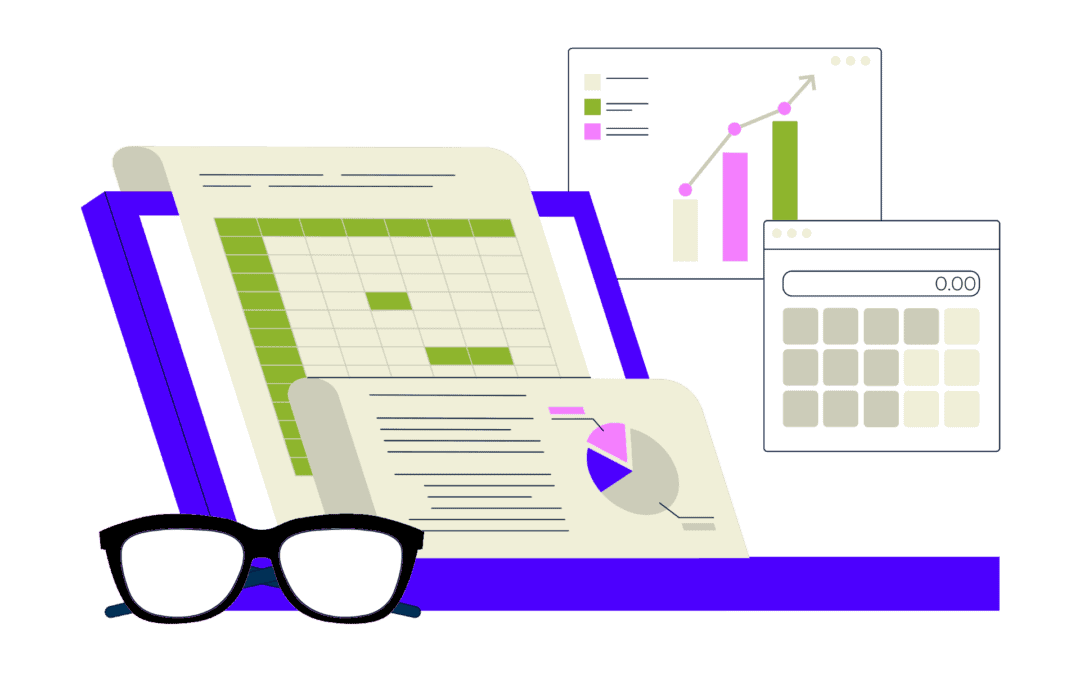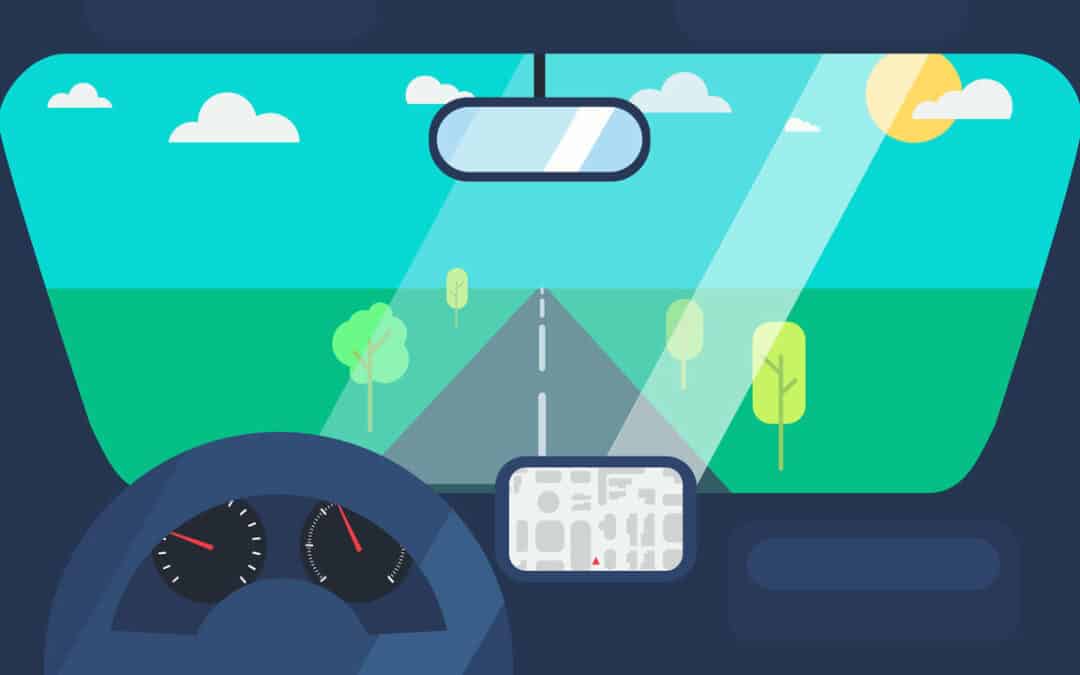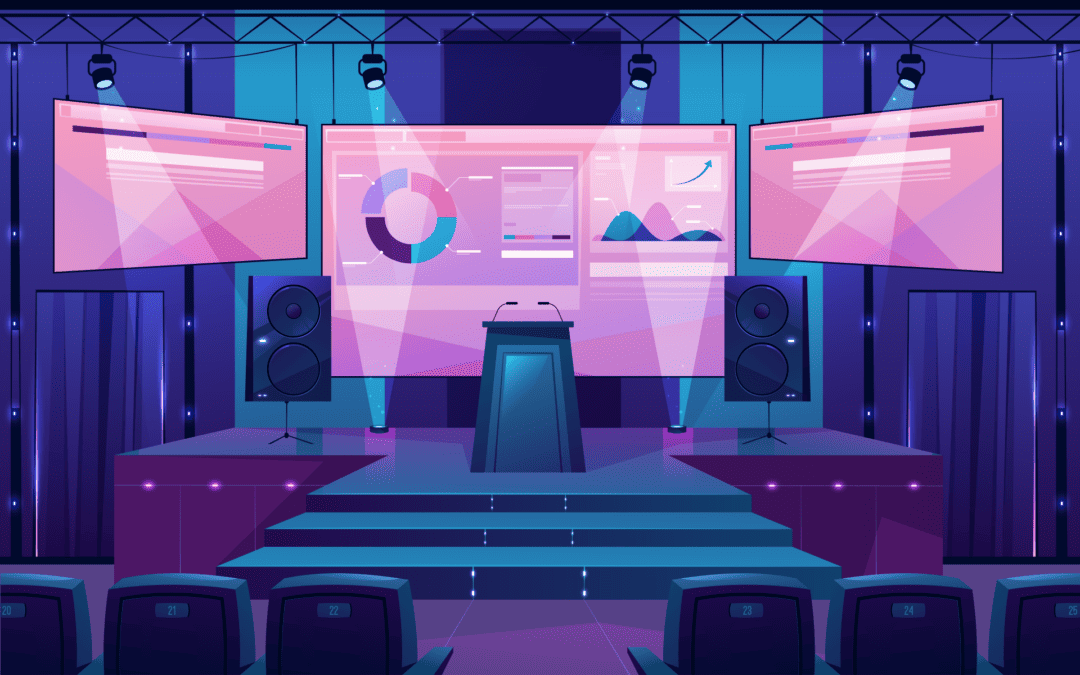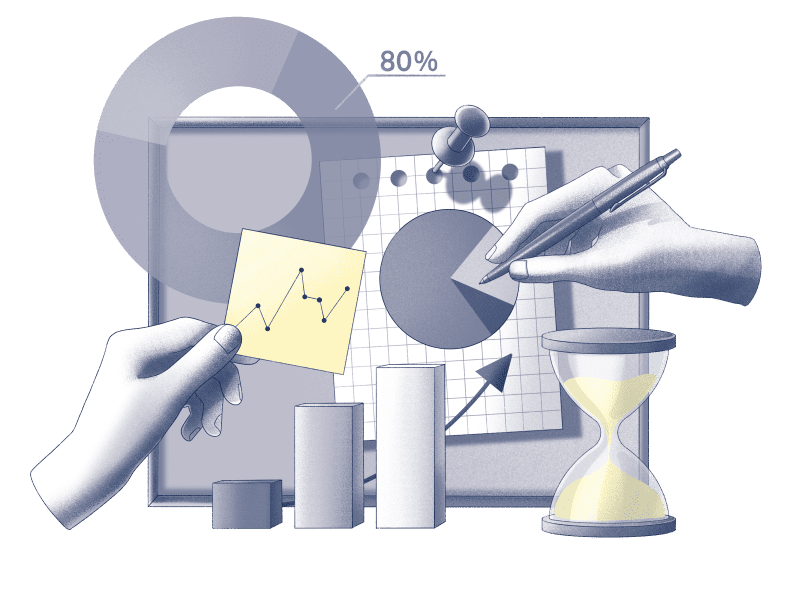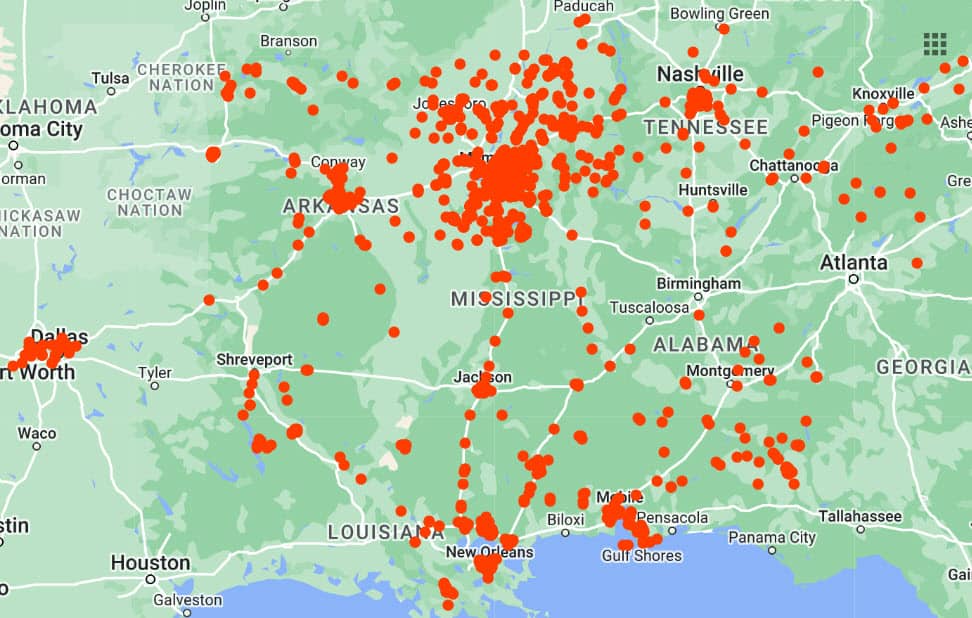It goes without saying, at the very least, field inspections require a vehicle, camera, measuring wheel, and clothing for all weather conditions.
Second to that is a computer, or laptop, for completing inspection forms on the inspection company's platform of choice.
The insurance inspection companies I've contracted with have a few basic requirements, mentioned above, for completing field inspections. Over the years my list to perform insurance inspections has grown a lot and allows me to operate at maximum efficiency.
This list represents several years in the field. Trial and error with a few, baptism by fire with others. I break them down into four main categories: tools, equipment, apps, and software.
Some of these items could really be in a few categories. For example, accounting, I have it under apps, but it could be a software. I consider it an app since I access it online and it's not a software I had to install on my computer.
This list is guaranteed to grow and change as I find new ways, apps, and tools to leverage my time and expertise.
Tools of the Trade…
When I first started I didn't have everything I needed, or wanted. I upgraded and bought more stuff as the business grew.
The bare essentials I knew I needed was transportation, a camera w/pole, measuring wheel, computer, printer, and clothing for the elements.
I printed out the forms I needed for an inspection as I scheduled them. That was an expense in paper, toner, and printer drums. I finally went digital in 2021.
Now that I'm 100% digital, I can complete about 85% of the forms in the field on my tablet. When I'm at the office that leaves uploading pictures, entering in a few other data points, and double checking for accuracy before submitting to quality assurance.
Double entry sucks! Writing the information on paper in the field during the interview and then transcribing it to digital format is not maximizing or leveraging time.
I made buying a tablet a priority and added the extra phone line with the phone company. Now we're talking!
The Tool List…
Vehicle
As long as it get's me from point A to point B, I'm good. I've had two vehicles since starting Inspections Midsouth and highly recommend any 4 cylinder that's good on gas with easy maintenance. One thing I would not recommend are EV's.
I typically travel anywhere between 250 to 500 miles (sometimes more!) on inspections days and EV tech is not a viable option. Until the EV industry has more charging stations or battery changing locations it just doesn't make sense.
Add to that the time it takes to charge a battery, an hour or more! Not the best use of time. Forget about long distance travel. I cover eight states and could not imagine having to track and map charging stations. No thanks.
And then there's maintenance, EV batteries are EXPENSIVE! Tesla claims their batteries last 100,000 miles before having to replace them, at a whopping $5000 to $7,000 each! Other EV manufacturers have models where it's like eight years or up to 10,000 miles, based on usage and location.
I drive a 2016 Hyundai Elantra. I bought it used with 9,500 miles in 2019 and currently have over 180,000 miles as of this writing. It gets anywhere between 42 to 46 MPG on the highway, 38 city.
Maintenance is about 6.5 % of revenue. Not having a dependable car means I can't do inspections, and no inspections means no money!
The “butt scratcher”, as my wife affectionally calls it (because it's so low to the ground), still purrs like a kitten because it is maintained religiously.
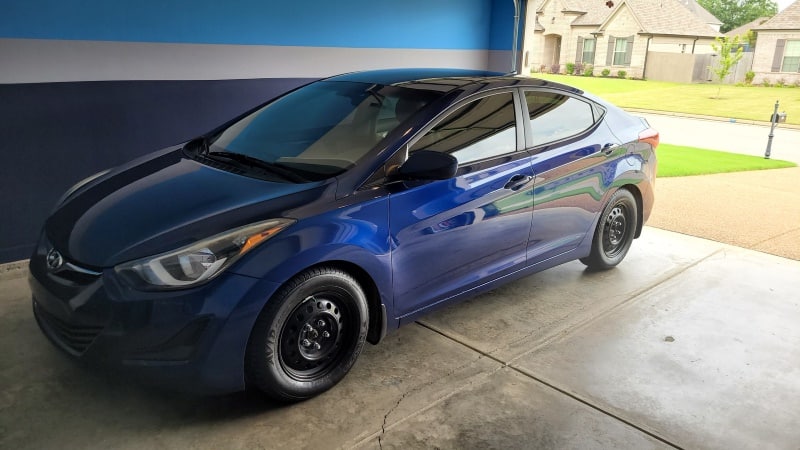
Also helps that I have breakdown insurance through CarShield covering most common breakdowns like engine, transmission, cooling, axle, fuel system, alternator, starter, and my personal favorite, power window motors, just say'n…
The most routine expenses are oil changes and tires. Since I run anywhere between 25 to 35,000 thousand miles a year, I target between 5,000 and 5,500 for oil changes and about 75,000 miles on tires.
I recommend investing in Lucas Oil. It extends oil viscosity between oil changes and protects against startups. Also gives me a few extra MPG's to boot.
Regarding tires, I stick with 50,000 to 65,000 mile rated tires and since most of my driving is highway miles, I know I can get at least 75,000 miles before replacing them, or about a year and half.
Car insurance is another necessity. My limits are 250/500, with a $500 collision deductible, and $0 comprehensive. My front windshield has been replaced three times since 2019 because of rock damage.
Some windshields can get pretty expensive, depending on the car, anywhere between $500 and $1,500 – even more if there's a backup camera or HUD. With a zero comprehensive deductible, it means I'm paying nothing out of pocket for new windshields, installed.
I also carry a personal umbrella policy with $1,000,000 in liability coverage. Very inexpensive and well worth it. Accidents can and will happen, insurance is there to protect “ass”ets, if ya know what I mean.
Camera
I have several cameras, and I don't buy them new. I go to eBay and buy them used.
Digital cameras are typically good for at least 50,000 shots, sometimes more. Meaning, at some point they just stop working.
That may sound like a lot of pics, but when you consider I snap anywhere between 150 to 250 pictures a day when I'm in the field, it adds up.
Since starting in 2018 I've purchased 5 cameras, 3 are history, one is a backup, and one is still in service. Although, I'm always shopping for another, just in case. A saved search on eBay keeps me in the loop.
I've also researched some wet weather cameras and considering getting one. Electronics and rain don't mix, having a water resistant camera on rainy days would certainly help. The trouble is finding one that can attach to a camera pole.
The camera's I like are made by Canon. They are inexpensive and have had good luck with them. I buy either the PowerShot ELPH 190 IS, or the SX280 HS, primarily because of it's GPS capability.
Yes, there are some inspection companies that require GPS tagged photos of the inspection.
The cameras usually come with batteries, a case, and charging unit. If a camera quits working I can search for just the camera without the extra's since I have batteries and charger that are compatible, saving me money.
I don't throw away a camera either if it's still working. There have been times I've been on an inspection and either dropped the camera and it broke or it stopped working all together. Having a back up camera has saved my bacon on a couple occasions.
Why not just use your phone David? Glad you asked.
I do, on occasion, use my cell phone for pics when something like forgetting or breaking the camera happens. I even bought a cell phone holder adapted for camera poles and it works great.
For me, it comes down to data transfer and storage (weather can be an issue too).
I much prefer to keep photos on a memory stick I can remove and use a card reader to transfer data to OneDrive for storage. It's a personal preference, nothing more.
Camera Pole
Most, if not all, inspection companies want roof photos taken by with a camera pole if the height of the roof is below 20′, in other words, higher than a standard camera pole can fully extend.
My camera pole extends to 24′, and holding it adds another 3′ of arm length. I also have an adjustable 6″ attachment I use to rotate the camera varying degrees up to 90′.
This helps with shots where I can't access an area and need to extend the pole horizontally, like over a low fence line.
It used to be acceptable to stand away from the property, zoom and snap the roof, but inspection companies stopped accepting these type photos. The job gets rejected if this happens. Why?
Zooming into a roof doesn't show the roof line or other aspects of the roof, sunroofs, vents, etc. Taking photos with a camera pole can pick up all these items and missing shingles, or cladding, that is simply not viewable from the ground.
Since roofs have variable pitch and elevation, the use of a camera pole is essential. For example, flat roofs make it impossible to photograph from the ground.
GPS
Directions to and from point A to point B is a good thing and if you're in a remote area, it's crucial.
I've been in mountains and recreational areas where my phone has no reception at all, that sucks. Especially when it's comes time to call the insured for an interview.
The Telcom companies don't have cell towers on every mountain peak, that would be nice, but until the tech improves area coverage, for my money a GPS unit is essential.
Some phones just don't have good GPS tech where as GPS units operate differently. My GPS has never failed to operate in low reception areas.
I bought a Garmin when I first started. It was not my first choice but Garmin offered free map downloads, where in the past it required a subscription to get the latest maps. When working on a budget, it's best to avoid un-necessary expenses.
Measuring Wheel
There are times when sketching is required. And in order to sketch, measurements are required.
Insurance policies on property are primarily based on square footage. It boils down to how much material would be needed if there was a partial / total loss.
There are several other factors, but for my purposes the only way to figure that out square footage is by measuring the footprint of the building.
But it's not enough to just measure a wall, one needs to record that data so it can be sketched in the inspection companies online platform.
In the past I used the paper forms I printed for an inspection to draw walls and measurements. And in 2021, when I went completely digital, my Apple tablet became my best friend.
Rapid Sketch has a free version of their sketching program in the Apple store. Biggest time saver ever.
Weather presents a challenge. When it's raining I use a gallon size baggie for my tablet and can still sketch while protecting the tablet.
Binoculars
There are a few companies that require binoculars to perform inspections.
I used to perform audits for a company where I needed binoculars to zoom in on serial numbers located on farm equipment.
Some of the equipment was unreachable or it was so big, the folded parts of the equipment were high in the air and I was unable see the serial tag from ground level, and climbing said equipment was not an option.
Having a good pair of binoculars is a time saver. In addition, they are just fun.
Flashlight
Any flashlight will do. There are times when the buildings I inspect are vacant and the utilities are off. A flashlight allows me to get the required pictures for the inspection.
I currently have and use a mini flashlight. It's led powered (no light bulb burnout) and small enough to carry in my satchel. Nuff said…
The Equipment List…
Wet/Cold Weather Gear
This should be a no brainer. I keep a full set of wet and cold weather gear in my car. This includes pants, jackets, and cold weather gloves.
I've been on inspections in cold months where it's negative degrees, yea, like snot rolling out your nose cold .. ewww. The elements can be harsh.
I also carry warming packets, the kind where I shake to activate and then stick them in my gloves for additional warmth.
The challenge is handling the equipment, like the phone or tablet. It's awkward to operate because of the gloves, so that means taking off a glove to operate the equipment … brrrr!
I once did an inspection on a house boat located “on” Fontana Lake in North Carolina. I arrived early morning and found out my point of contact was not available to boat me out to the location. So I was given keys to a pontoon boat and away I went.
It was 35′ degrees that morning and while it was just a 10 minute ride to the house boat, the wind chill made it even colder, so yea, it was freak'n cold!
By the time I arrived back at the Marina, I could barely move my fingers.
Bottom line … don't forget your gloves!!
Wet Weather Boots
Just like wet weather gear, wet weather boots are a must.
I've inspected construction sites and audited farm equipment located in fields where it's rained and the mud is thick!
Having a good pair of wet weather boots saves my footwear from the embarrassment of dirt and mud, and rubber boots are easy to clean.
I was on John Deere audit where the farm equipment was located in a field. It had rained several days leading up to the audit. So I put on my trusty rubber boots and started walking.
About halfway out I stepped in a mud pocket and the suction of the mud on my next step took my boot completely off. Talk about fun!
On the subject of footwear, I highly recommend work boots. The areas I inspect may have overgrown grass, or bushes, and traipsing through brush in tennis shoes or the like just invites chiggers and ticks.
Even with work boots, I've had a case of chiggers a few times, not fun. I also carry bug spray if the area I need to inspect is overgrown with grass or bushes.
Satchel
Yea, that's right, a man purse. Although, I prefer to think I'm like Kiefer Sutherland in his action series “24”, always carrying that satchel of gadgets.
There are necessary items I carry with me on every inspection and having a good satchel satisfies this requirement. Not to mention having a flap to protect the valuables inside from the elements.
Running back and forth to my car is not an option, it just makes sense to have something, like a satchel, I can strap on and carry the essentials.
I considered using a backpack but quickly realized I would need to take it off every time I needed something, definitely not user friendly.
So what essential items do I carry in my “man purse” you ask? In the main pockets I carry my tablet and a clipboard with a pad of paper, just in case.
However, I don't use the clipboard as much anymore since I can write notes or information directly onto the tablet. But it makes a great sun shield for the shots where I'm facing the sun.
In the zippered areas I carry a mini flashlight, my backup camera, pens, pencils, highlighters, phone / tablet adaptor for the camera pole, and a multi-use flat / Philips head screwdriver.
There are jobs where removing electric panels to check for aluminum wiring is a must. That includes electric plugs and switches.
I also carry a stack of business cards and zip drives. If I'm on an inspection where information is needed from the insured and they have it in digital format, I give them the option of emailing it or burning it onto a zip drive.
A business card with contact information or zip drive is easy peezy…
Tablet
As mentioned earlier, when I first started inspection forms were needed to record information during the inspection and subsequent interview.
I would then transcribe the data to the inspection company's platform, in other words, double entry.
I bought a tablet in 2021 and it's been the best investment I've made since starting the business. Printing inspection forms wastes paper, toner, and time. Going digital saves time and money.
Before the tablet, I would print the first page of the inspection that had the address and contact information along with the type of inspection I needed to perform, i.e. liability, property, or package.
Going digital came with a few more benefits. First, no more paper and toner waste. Second, I use OneDrive, which comes with a terabyte of storage.
I now print the entire inspection ticket in pdf format into a folder on OneDrive. This allows me access all forms while in the field where reception is weak and can't access the vendor's website.
My filing system in OneDrive is a time saver. I can access current and past inspections and since it's digital, I can access it anywhere.
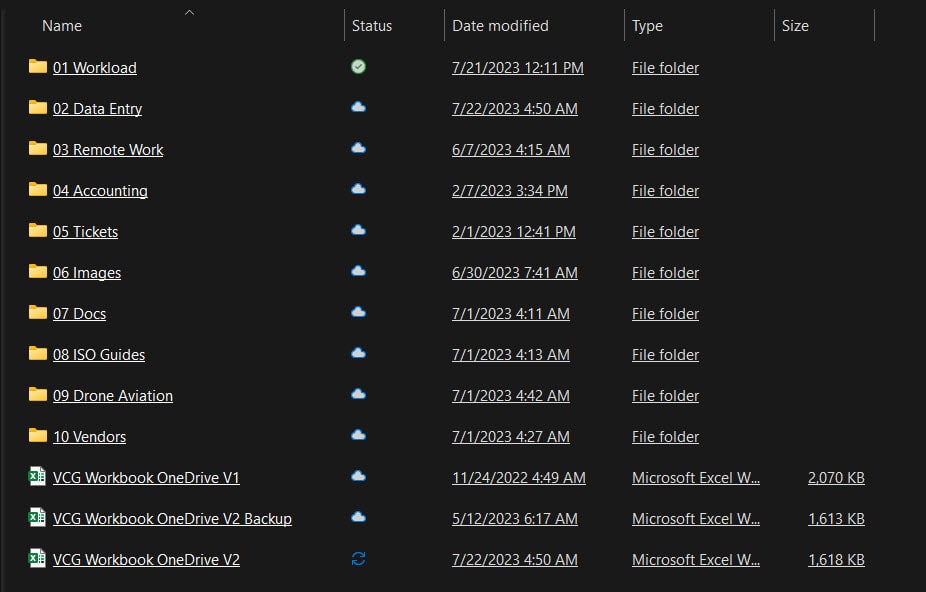
Tip: if I know I'm going to a remote area, I download the inspection ticket to my tablet before I go, that way, if I don't have reception to compete the forms online, I have the entire ticket downloaded so I can simply write the information on the ticket and save. It's still double entry but the number of inspections where I'm in poor reception areas is minimal.
Computer / Printer
This goes without saying. Running a business without a computer just doesn't work. The printer hardly gets used anymore since going digital but I do like to print production reports.
The laptop lifestyle can work. I use a laptop while doing remote work where I'm gone for a week at a time in other states. Just be sure the laptop can handle apps like Rapid Sketch.
I made the mistake of buying a cheap laptop on Amazon and when it came to sketching, the program would not load. Which left me having to wait until I got back to the office to complete inspections.
This was a waste of my time and delayed pay because I couldn't complete the inspection in the field.
The App List…
Mileage Tracking
The IRS allows individuals to deduct mileage for certain personal and business expenses, and inspections fall into this category.
Technology makes tracking mileage easy peezy. I use an app called Triplog. It's web based and compatible with Android and iPhone.
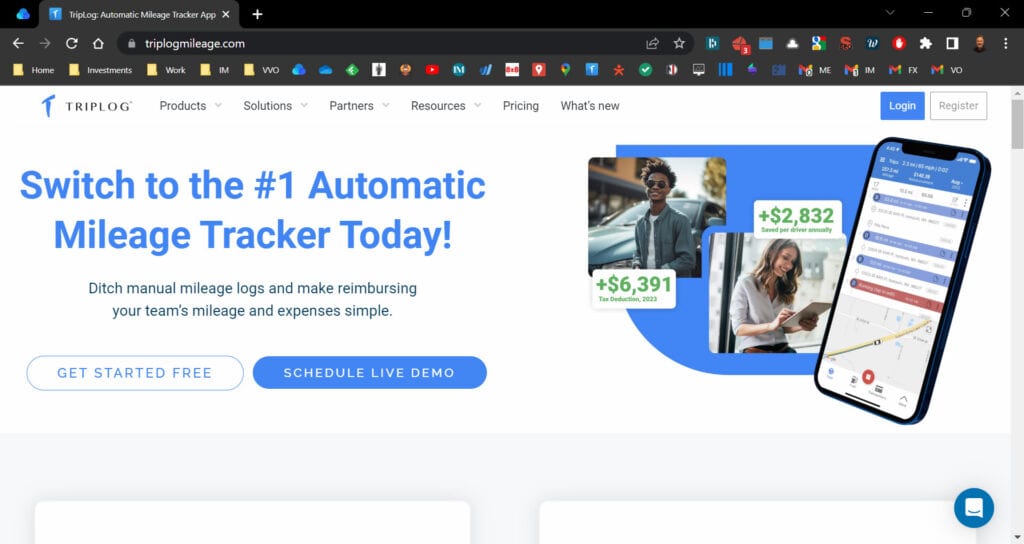
What's cool about this app, besides being cheap, is it turns on automatically when the vehicle is moving. I can also track fuel consumption and MPG. It has a few other bells and whistles I don't use but overall it works as advertised.
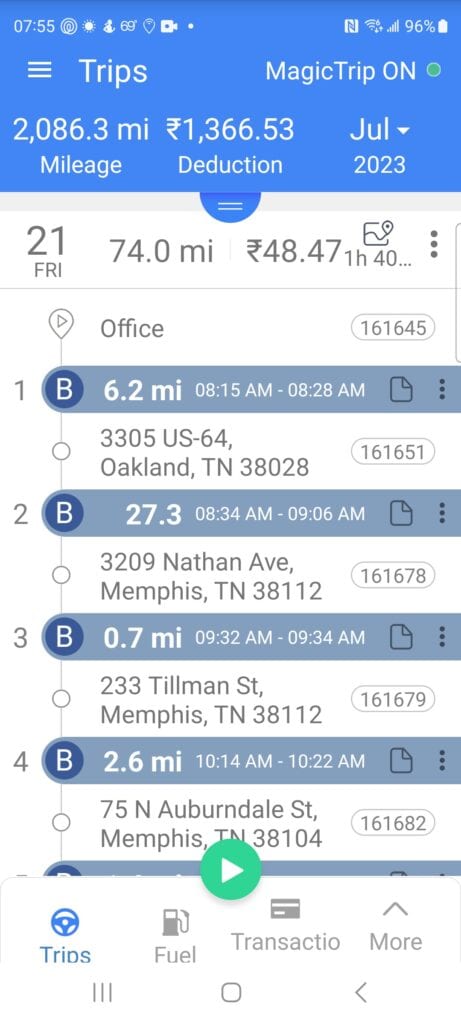
At the end of each year, I generate a report of business / personal mileage for tax reporting, no muss no fuss.
Mileage deductions change from year to year so it's important to keep up with the changes. More information can be found here > https://www.irs.gov/tax-professionals/standard-mileage-rates
Accounting
Getting paid is pretty important, but tracking what hasn't been paid is even more important. Accounting is not my favorite pastime and keeping up with invoices is a necessary evil.
I've tried QuickBooks, not a fan. Not only is it subscription based, but it has a steep learning curve. I found and use a free app called Wave. That's right, free!
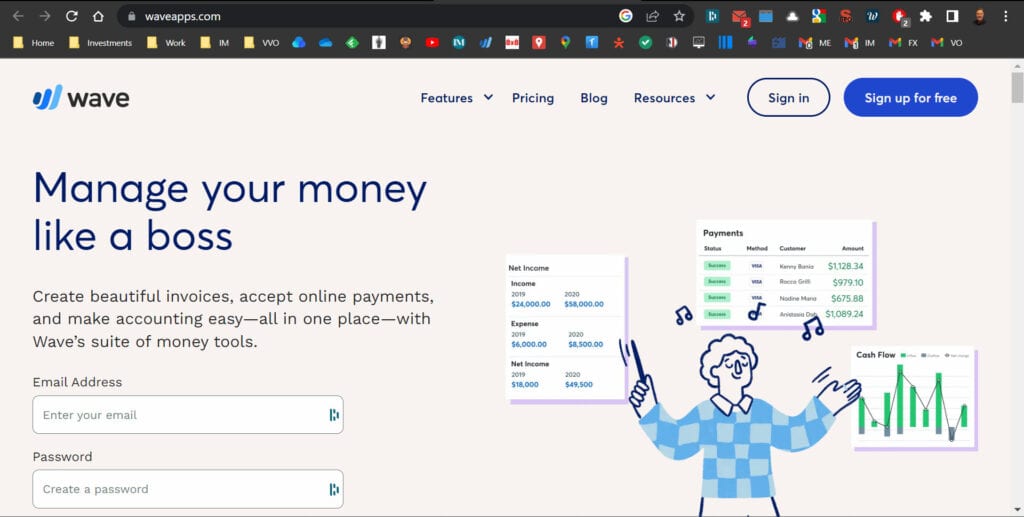
It's a simple web based invoice and accounting software that's completely free to use. They make money on credit card payments, mobile receipts, payroll, and advisors. Nothing I need or use in the course of business.
Chrome
There are a few internet browsers on the market, Google, Mozilla Firefox, Internet Explorer, Opera, and a few others. Since I use Google for email, maps, and Google Earth Pro, I'd rather operate from a central location. Makes my life easier.
Rapid Sketch
I mentioned this app earlier. It allows field inspectors, like myself, the ability to sketch property footprints and record square footage.
The free version has a watermark on the final print export, which is not allowed for submission on the inspection companies platform.
The paid version of Rapid Sketch is not necessary because it's included on LC360, the standard platform for many insurance inspection company's data entry, and is cost prohibitive for my use.
It's a simple sketching app I use to sketch and transcribe later when I'm in the office.
Rapid sketch was acquired by Majesco and they have since fixed a few problems with the mobile version, making it user friendly. I have it installed on my Apple iPad and is available in the Apple Store.
There is an Android version, and from what I can tell, there are small differences in the look and feel.
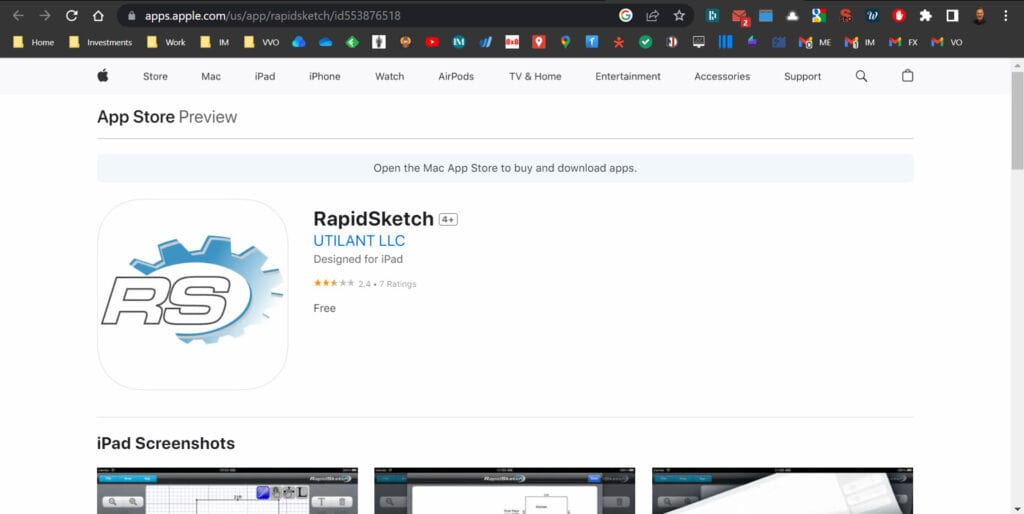
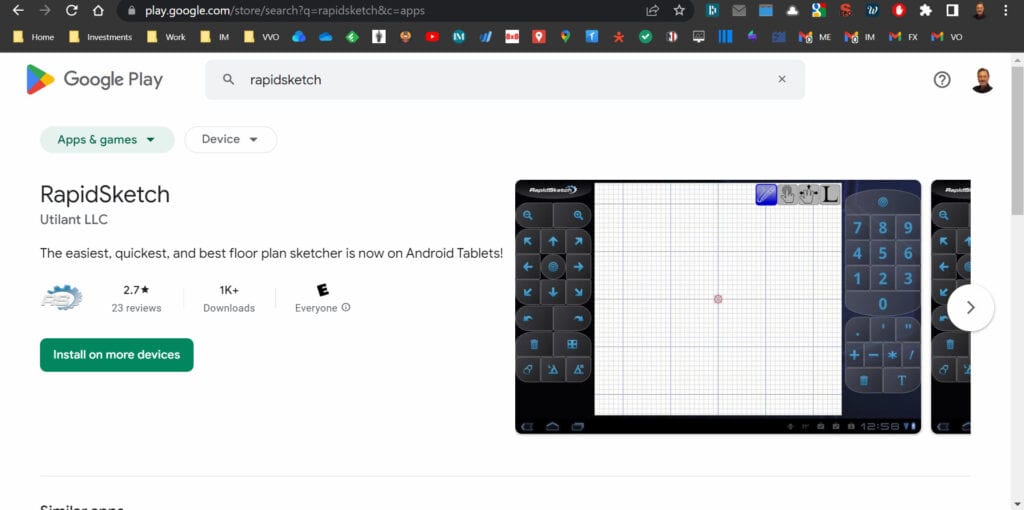
Auto Text App
This handy dandy little app allows me to schedule text reminders for insureds once we have agreed on a date for the inspection.
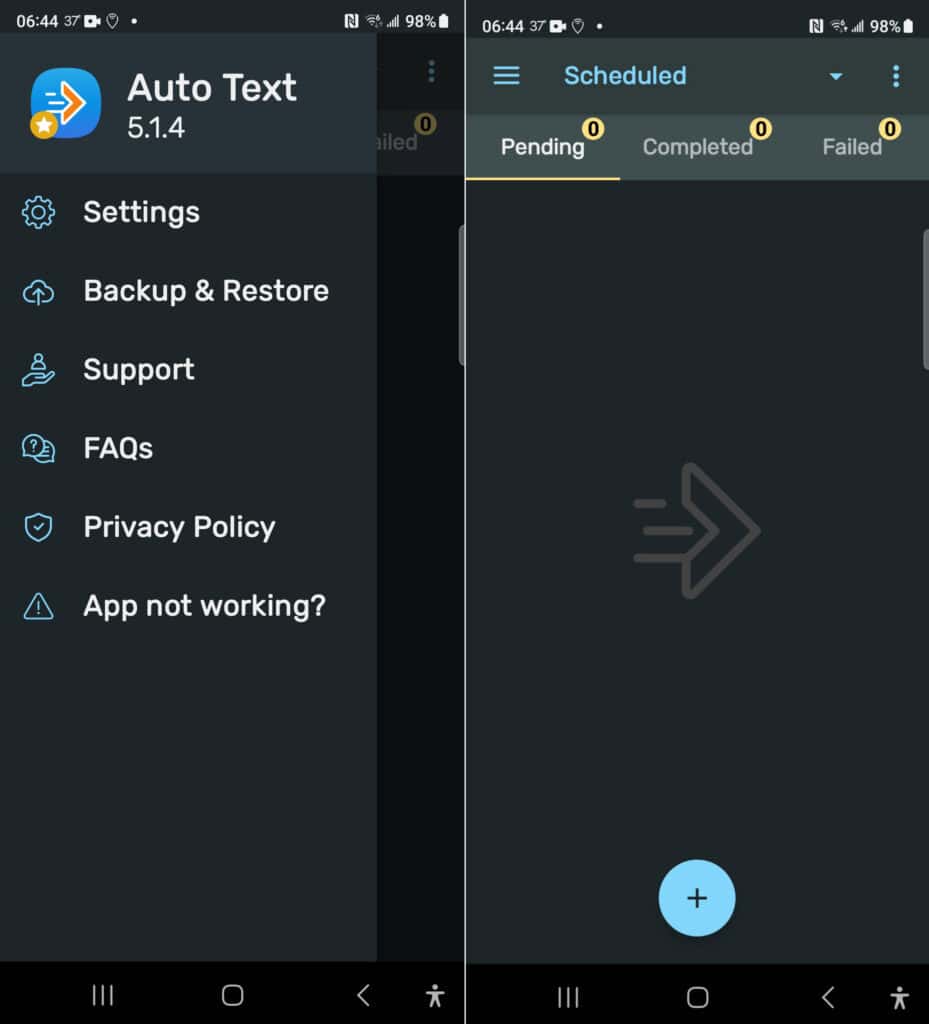
I sync my Android phone to my computer using Microsoft's Phone Link and then select the Auto Text app from the Apps menu.
After approving permissions on the phone, the app loads a small window and I place it next to the 8×8 dashboard. Makes it easy to make calls and set text reminders during the call.
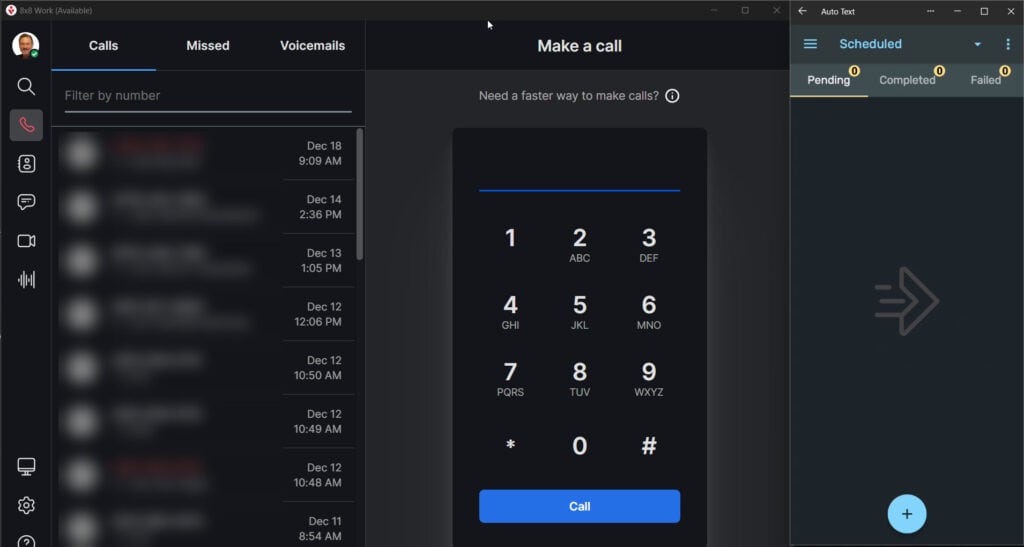
The Software List…
Office 365
I've been using spreadsheets for years, even as far back as Lotus 123. I've built databases in the past but I don't have enough knowledge, expertise, or the time to learn what Excel can do with simple formulas.
Spreadsheets give me answers about my business that help with the decision process, like which vendors are not supplying enough work and should be cut from the vendor list. Or how much work I have scheduled or need to schedule.
Not to mention all the data sets on jobs, mileage, territories, cities, production, vehicle, 1099's, and routing. It's indespensible to my business and recommend anyone keeping track of their inspection business to use Excel.
Password Software
I use password apps / software to log me into sites / apps. I don't know about you, but it would be impossible for me to keep up with all the different passwords.
Especially sites that require character minimums, small / large caps, numbers, and symbols … good grief!
I was a fan of Roboform for many years until the rising costs and software bugs drove me to find alternatives like Lastpass. I used them until they went up in price, which lead me to Dashlane.
Dashlane is not bug-free either. They have a few things that drive me crazy. For example, when I save a site that requires a login, the default setting is to automatically log me into that site when I revisit. I hate that!
Once I save a site I have to edit and uncheck this setting every time. I reached out to Dashlane about it, asking if they could switch it to off by default, the response was they were looking into it. That was months ago… go figure.
I finally switched to Google's free password manager. It is limited to the number of sites it can password save, I believe it's 1,000.
If I can shave expenses and increase margins, apps like Roboform, Lastpass, and Dashlane get cut. Nuff said.
Skype -or- VOIP
Working from home means I make phone calls to schedule inspection appointments, talk with vendors and insurance agencies.
I was using my cell phone for this when I first started out but as my business grew, I wanted to separate usage and VOIP, or Voice Over Internet Protocol, was the answer.
I started with Skype. The platform was free and I used it for several months. As my business grew I purchased a Skype phone number so I could separate office from field work.
The only downside was their voicemail system. It didn't allow any voicemail personalization so it defeated the purpose of using it for my business.
I signed up with 8×8 in 2023. It's super cheap, has an awesome voicemail system, which can be personalized, and a host of other features I don't use or need right now, but scalable.
The desktop app works perfectly with a USB headset. Copy, paste, call, record the conversation if necessary, easy peezy.
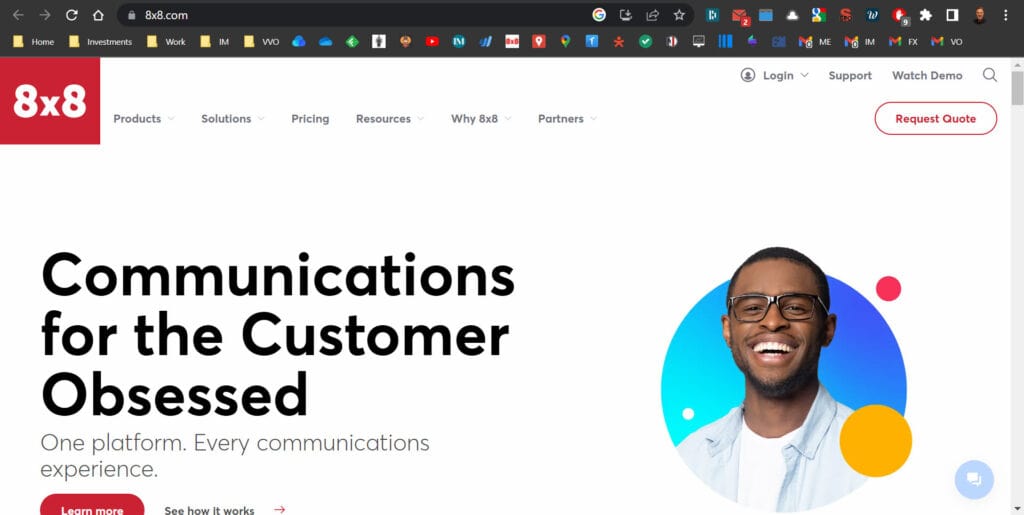
Google Earth
In addition to Google Maps, I also use Google Earth Pro. It's a downloadable mapping software I can use to zoom in on addresses associated with inspections.
They have a web based version but I find when I'm working, I have a lot of tabs open for different things and adding one more tab isn't user friendly.
Running Google Earth on my desktop is a much better alternative.
PDF Reader
I'm a big fan of Adobe because of all the apps they offer. Adobe reader is free and a must in my digital workspace.
I can't be productive unless I have seamless apps I can count on to perform 100's of inspections per month. I tried several other pdf programs and they all have their quirks.
WiseStamp
I do a lot of emailing to insurance agencies, insured's, and vendors. I use WiseStamp to generate signatures with contact information.
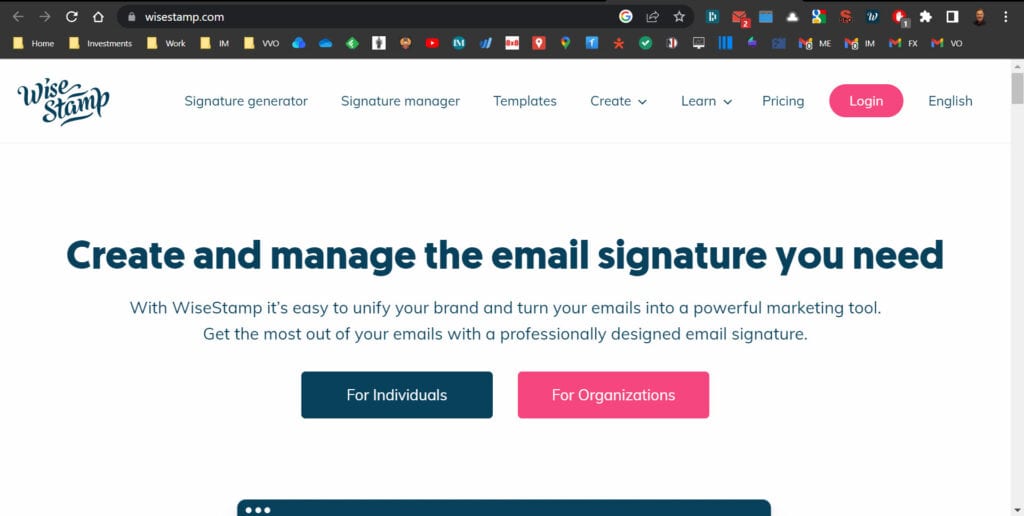
It looks professional and adds credibility. A lot of times when calling insured's to set appointments, if they don't recognize the number, it goes to voicemail, then they don't check voicemail, the life of an insurance inspector.
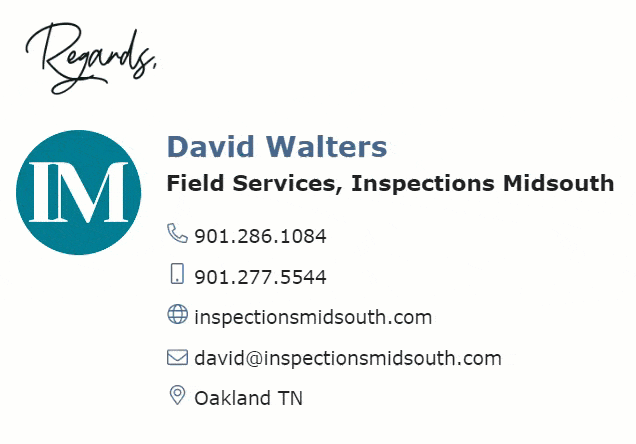
I find sending an email (if there is an email available on the inspection ticket) with my signature attached provides a better response.
The insured can call or forward the email to their insurance person to verify if I'm legit, or they simply respond with a call or email reply asking for the next steps.
Well, that's a wrap … for now. I told ya it was a long one. This list will change over time and I'll add, remove, or supplement the content as I continuously look for ways to leverage and maximize my business.
Time to move on to Form and Function…



